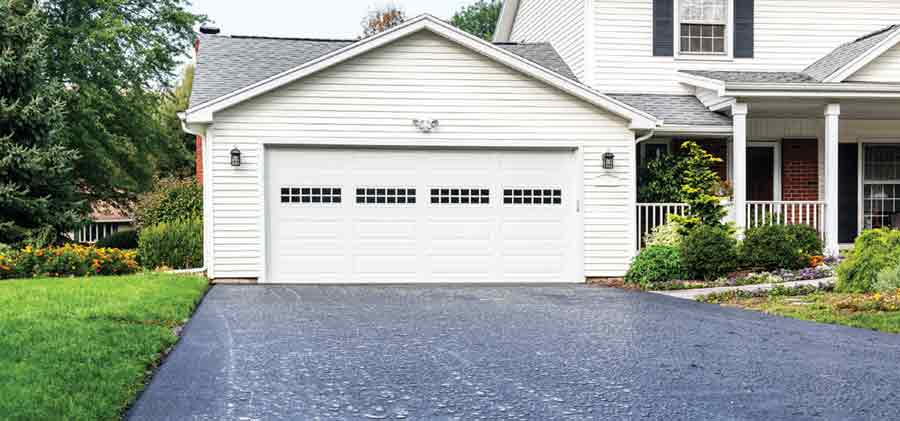Driveway gates are important for security and curb appeal. However, they need regular care to function well and last long. In this article, we will share essential tips for driveway gate maintenance. These tips will help you keep your gate in optimal shape and avoid costly repairs.

6 ways you can protect your Driveway Gate
Maintaining your driveway gate is crucial. Regular upkeep ensures that your gate operates smoothly and looks good. It also helps prevent major issues that can lead to expensive repairs. A well-maintained gate lasts longer and provides better security for your property.
1. Everyday Maintenance Practices
One of the first steps in driveway gate maintenance is regular cleaning and inspection. Dirt, dust, and debris can build up on your gate. This build-up can cause problems if not addressed.
Therefore, make it a habit to clean your gate frequently. Use a mild detergent mixed with water. Make sure to scrub the gate, paying attention to the hinges and any moving parts.
While cleaning, inspect your gate for signs of damage. Look for rust or corrosion on the surface.
Check for loose hardware, as this can lead to malfunction. If you notice any issues, tackle them right away. Early detection can prevent further damage.
2. Gate Lubrication Tips
Proper gate lubrication is a key part of driveway gate maintenance. Over time, your gate’s moving parts, like hinges and rollers, can become dry.
This can lead to friction, causing your gate to operate poorly. To avoid this, you should lubricate these parts regularly.
- Use a high-quality lubricant. Silicone spray and white lithium grease are great options.
- Apply the lubricant sparingly to avoid attracting dirt.
- Wipe away excess lubricant to prevent it from collecting dust and grime. Using these gate lubrication tips will help your gate move smoothly and quietly.
3. Gate Rust Prevention
Another critical aspect of driveway gate maintenance is rust prevention. Rust can weaken your gate and lead to significant issues. To protect against rust, apply a rust-resistant paint or sealant. This protective layer helps keep moisture out, reducing the chance of corrosion.
If rust spots appear, treat them immediately. Sand the area to remove the rust, then repaint it. Regularly check for rust, especially in humid climates. Keeping an eye on this will help you maintain your gate’s appearance and functionality.
4. Hinge and Motor Care
Pay close attention to your gate’s hinges and motor. These components are vital for smooth operation. For hinge care, ensure they are properly lubricated and aligned. Misaligned hinges can lead to binding or scraping, which can damage the gate.
If you have an automatic gate, motor care is equally important. Consult your automatic gate servicing manual for specific maintenance guidelines. Regularly inspect the motor for any signs of wear. Keeping it clean and well-lubricated can help prevent breakdowns.
5. Regular Gate Adjustment and Alignment
Occasionally, your driveway gate may need adjustment. Over time, the alignment can shift due to temperature changes or settling ground. Regularly check the alignment during your driveway gate maintenance routine.
An unaligned gate may scrape against the opening. This can cause wear and tear on both the gate and its components. To adjust, look for screws or bolts that need tightening. Make sure the gate swings freely and closes securely.
6. Annual Inspection Checklist
To keep your driveway gate in top condition, use an annual inspection checklist. This helps ensure you cover all aspects of maintenance. Here are a few key points to include:
- Check for Rust and Corrosion: Look at the entire gate for any signs of rust.
- Inspect Hinges and Rollers: Make sure they are lubricated and functioning properly.
- Assess the Motor: For automatic gates, ensure the motor is clean and operational.
- Tighten Hardware: Go through all bolts and screws, ensuring everything is secure.
- Adjust Alignment: Check if the gate is aligned properly.
Completing this checklist each year will help keep your gate functioning well. You can catch any small issues before they become larger, more expensive problems.

Conclusion
In conclusion, driveway gate maintenance is essential for longevity. By following these simple steps — regular cleaning and inspection, proper lubrication, rust prevention, and hinge and motor care, you can increase the life of your gate. Don’t forget to use your annual inspection checklist to ensure you cover all necessary maintenance tasks.
If you’re unsure about any aspect of driveway gate maintenance, consider seeking professional gate repair services. Many companies specialize in driveway gate repairs and maintenance. These experts can help keep your gate functioning smoothly and safely.
Whether you have a swing or sliding gate, these tips will ensure you get years of reliable operation. Start your driveway gate maintenance routine today, and enjoy the peace of mind that comes with a well-cared-for gate!
FAQs
It’s recommended to perform maintenance on your driveway gate at least once a month. This includes cleaning, lubrication, and inspections for any signs of damage or rust. Additionally, conduct a more thorough check using an annual inspection checklist to ensure all components are functioning properly.
For optimal driveway gate maintenance, use a high-quality lubricant such as silicone spray or white lithium grease. Apply the lubricant sparingly to hinges, rollers, and other moving parts. Avoid excess lubricant build-up, as this can attract dirt and debris. Regular lubrication helps minimize friction and wear, ensuring smooth operation.
To prevent rust, ensure your driveway gate is made of rust-resistant materials or apply a protective sealant or paint. Regularly inspect the gate for any signs of rust and treat any spots immediately by sanding and repainting them. Keeping your gate dry and clean also helps reduce the likelihood of rust forming.


